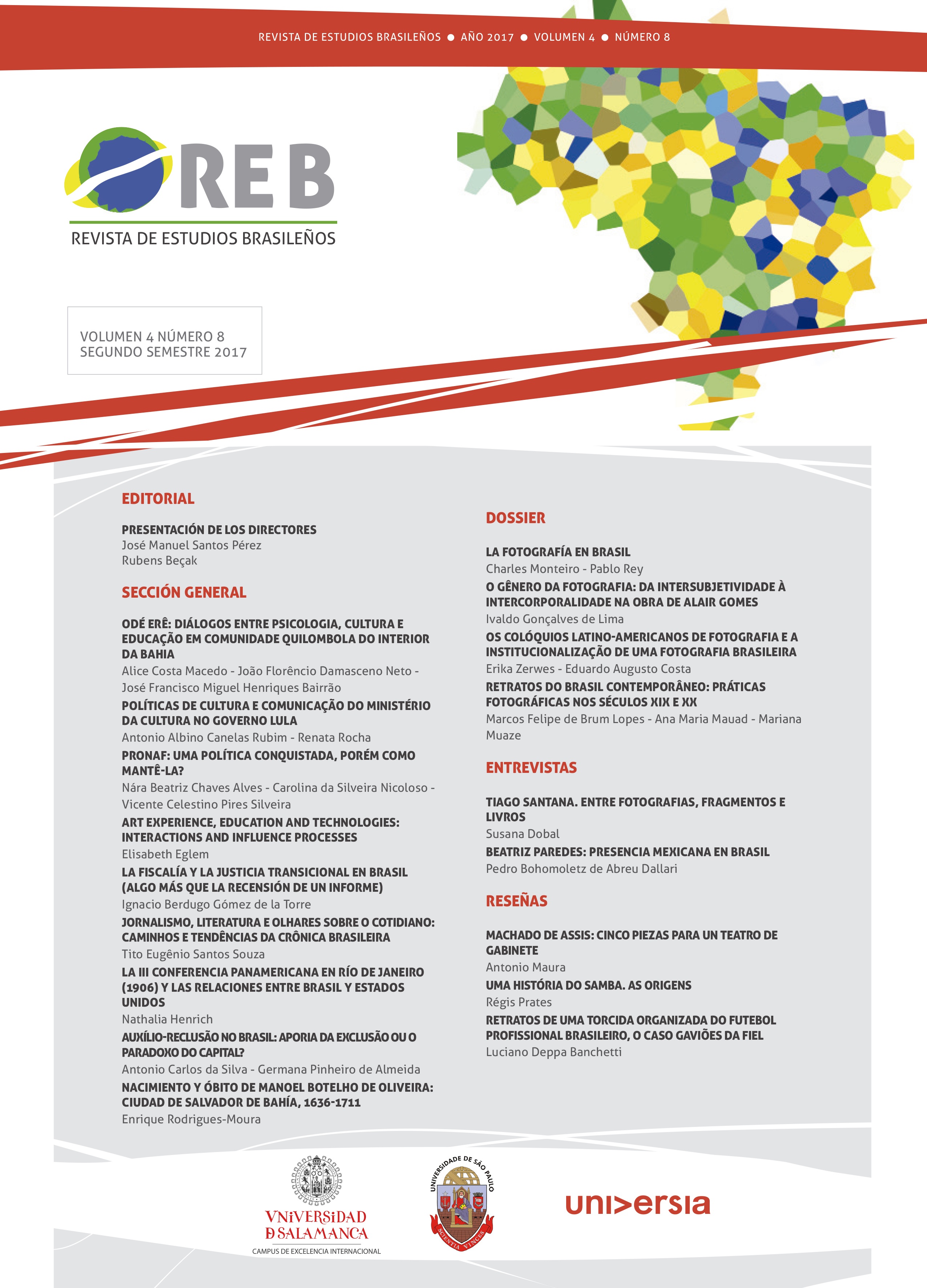Culture and communication policies of the Ministry of Culture in the Lula Government
DOI:
https://doi.org/10.3232/REB.2017.V4.N8.3064Keywords:
Cultural policies, culture, communication, audiovisual, Brazil.Abstract
This article analyzes the cultural policies promoted by the Ministry of Culture during the Lula government (2003-2010). Emphasis is placed on the actions related to the interface between communication and culture of the Audiovisual Secretary (SAV). For this reason, three specific initiatives are considered: the discussion on increasing the influence of Ancine, starting with the proposed creation of Ancinav; the bill developed to regulate the electronic media; and finally, the actions for promoting audiovisual productions, highlighting the Promotion Program for Production and Broadcasting of the Brazilian Documentary, DocTV. This reflection focuses also on the main advances and obstacles in cultural policies, highlighting the ambiguities in policies for communication.Downloads
Download data is not yet available.
Downloads
Published
2017-10-05
Issue
Section
General Section
How to Cite
Culture and communication policies of the Ministry of Culture in the Lula Government. (2017). Revista De Estudios Brasileños, 4(8). https://doi.org/10.3232/REB.2017.V4.N8.3064


